Is It Safe To Cook In Vintage Aluminum Cookware? (7 Checks To Do)
Do you know aluminum cookware is as old as the first telephone? Although phones evolved into smartphones, aluminum has remained pretty much the same. Moreover, recent research shows that worn-out aluminum utensils can release toxic metals into food when cooked in it.
So, is it safe to cook in vintage aluminum containers? Can you cook in them?
No, vintage aluminum containers aren’t safe to cook in. However, you can use them in the kitchen if your cookware isn’t pitted, scratched, or worn out in any manner. Hence, you must discard cookware older than five years made of this metal.
Read on to discover the seven crises to watch for when cooking in vintage aluminum. In addition, you’ll also learn seven issues with them and the safety of other vintage cookware too.
Let’s jump right in!
Is it safe to use vintage aluminum cookware?
It’s safe to use aluminum cookware when seasoned well. On the other hand, vintage aluminum utensils are dangerous when severely worn out. For the same reason, the safety layers of vintage aluminum containers thin out with time. As a result, they end up leaving behind toxic metals in your food after cooking.
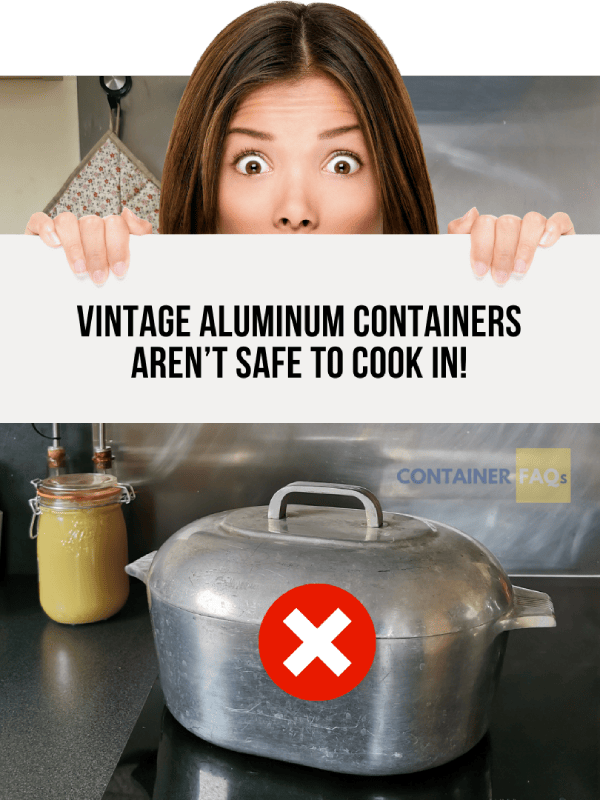
Aluminum or Al is a versatile metal. However, it doesn’t matter whether they were collectibles or heirlooms if you’re cooking in it. On the flip side, you should be concerned about their toxicity.
Moreover, worn-out aluminum cooking containers can cause neurological problems. That’s why aluminum kitchenware is banned in many European countries like France, Belgium, Switzerland, Brazil, Hungary, and Great Britain today.
What’s the problem with vintage aluminum cookware? 7 Reasons why it might be unsafe for foods
Firstly, many problems arise due to cooking in vintage aluminum cookware. Moreover, they can spoil the taste of the food. Similarly, they can even affect your brain!
So, take a look at my seven-pointer checklist to ensure your vintage utensils aren’t unsafe.
#1 Bad for certain foods
Aluminum is undoubtedly a non-toxic metal. However, it can react with acidic foods and become toxic when used for food. So, it’s better to skip it altogether if you’re looking for a versatile utensil to cook your sauces and curries.
Furthermore, highly-acidic foods can even make this metal soluble.
That’s why you should avoid cooking the below foods to preserve their integrity and quality:
● Tomatoes
● Lime Nuoc Cham
● Canned meats and veggies
● Spices
● Red meats
● Dairy products
● Mustard
● Pickles
● Pears
● Citrus fruits
● Pineapple
● Pepper
● Salty food
● Rhubarb
#2 Pitting
When this cookware begins to corrode, small holes, cavities, or pits form on its surface. Alternatively, dishwashing and harmful detergents can do the same.
However, all isn’t lost if your cookware is pitted. Consequently, you can quickly clear the pits by gritting the surface.
#3 Overheating
One of the wonders of this metal is its malleability. Nevertheless, that’s also why it’s dangerous at extremely high temperatures.
Moreover, overheating can do more damage than good to worn-out cookware from this metal. Additionally, the U.S Consumer Product Safety Commission says overheated aluminum can melt and even cause fires.
#4 Scratching
Much like scratching ends up disturbing the integrity of plastic products, aluminum suffers the same way. Also, scratches can spoil the food you cook in it. Additionally, it can become a severe health risk too.
#5 Metal leaching
When the integrity of this cookware is reduced from overheating, scratching, or pitting, it can leach toxic metals into your food. Furthermore, cheap and old aluminum cookware may contain lead, arsenic, and cadmium. So, watch out for worn-out utensils before they harm you!
#6 Age of the cookware
Wondering whether it’s time to recycle your cookware? But, there’s a better way!
Frankly, all you need to do is check its age. Typically, aluminum cookware older than five years are heavily worn out. Hence, they can easily make your food toxic. Accordingly, the rule of thumb is to recycle it (or sell it) if it’s vintage!
#7 Grading
Finally, checking the grading of your cookware is a life-saver.
Moreover, it’s easy to find that out. As a matter of fact, food-grade aluminum is indicated by the number 1100. So, it’s better to use such cookware set like this one and available on Amazon. Also, these are resistant to rust as well.
Are new aluminum containers safe for kitchen use?
Yes. Hence, you don’t have to worry about side effects if your aluminum cookware is new or current. As we learned in the last section, most kitchen utensils bought within five years are perfectly safe for cooking.
But, don’t forget to season new cookware with oil and warm water before cooking to maintain its quality and integrity.
What are the other vintage materials for cookware?
Indeed, aluminum cookware began to be produced in the late 19th century. Nevertheless, it wasn’t the only cookware of its time!
Let’s look at ten crowd-favorites from back in the day.
| Material | Pros | Cons | Safety |
|---|---|---|---|
| Copper | Heat conductivity | Coating wears off easily | Unsafe 🔴 |
| Cast Iron | Long lifespan and easy to clean | Rust | Safe 🟢 |
| Tin | Nonstick and non-reactive to acidic foods | Rust | Safe 🟢 |
| Ceramic | Easy to clean and versatile | Contains lead | Unsafe 🔴 |
| Stainless Steel | Can take high heat and retains it too | Metal leaching | Safe 🟢 |
| Pewter | Decoration | Contains lead | Unsafe 🔴 |
| Glass | Versatile and aesthetic | Contains lead | Unsafe 🔴 |
| Wood | Easy to clean, inert, and antimicrobial | Cracks easily | Safe 🟢 |
| Stoneware | Aesthetic and high-heat-retention | May contain lead | Unsafe 🔴 |
| Silverware | Regal look with a long lifespan | High maintenance | Safe 🟢 |
Make sure your aluminum cookware is safe before using them
Undoubtedly, vintage cookware is aesthetic. However, it can easily backfire if you aren’t careful. Nonetheless, the risk is higher when it comes to aluminum pots, pans, and even cans. Hence, most people will tell you it can wear out quickly with age.
Therefore, it’s best to use them strictly for decorative purposes if you don’t see any scratches or pitting. To be honest, that’s what I personally do!
Nevertheless, aluminum is a metal that isn’t unsafe on its own. As a matter of fact, even the popular options nowadays have it. For instance, the three-ply stainless steel and granite-coated cookware contain aluminum cores.
Regardless, time can be cruel to aluminum cookware. Accordingly, I suggest getting an at-home lead test kit if you’re concerned about toxic metals in your cookware.
Moreover, it’s better safe than sorry when it comes to kitchen utensils, right?
Sources
- ScienceDirect: Metal exposures from aluminum cookware
- eHow: Problems With Old Aluminum Cookware
- National Library of Medicine: Safety evaluation of dietary aluminum

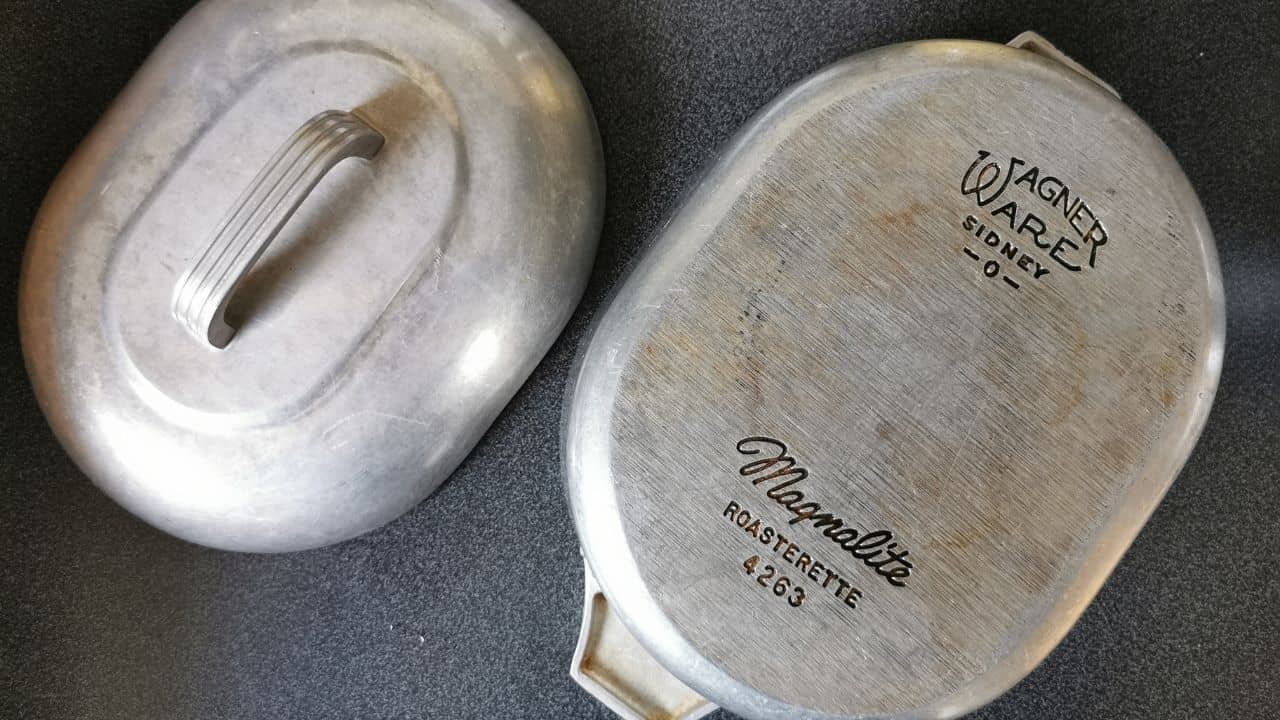
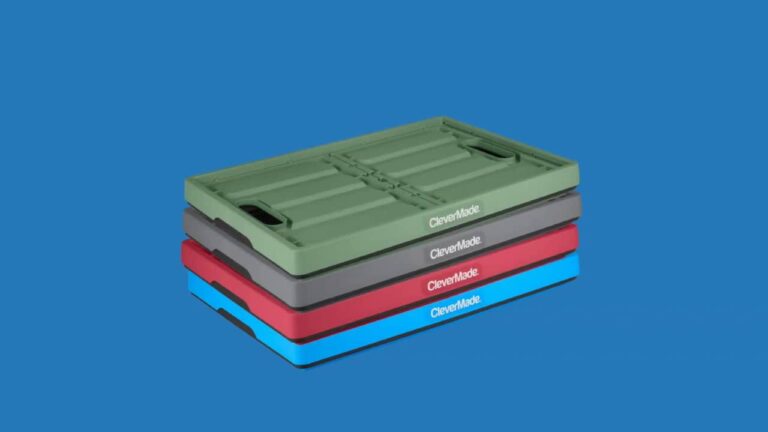
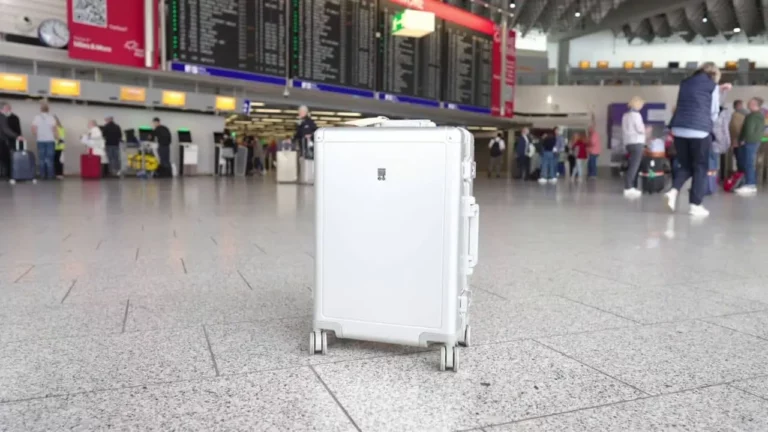
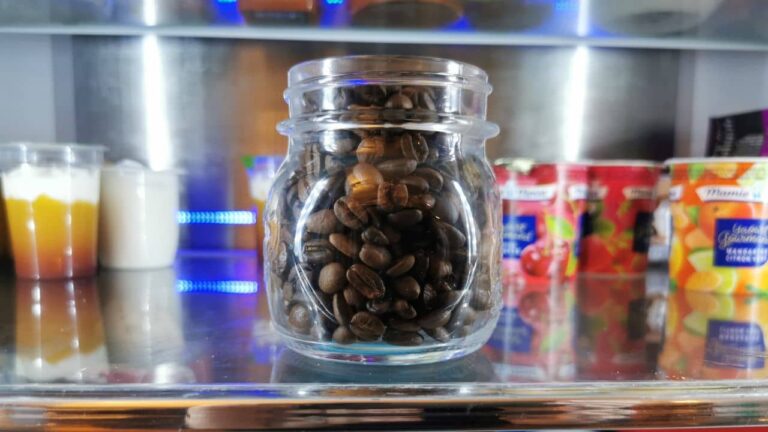

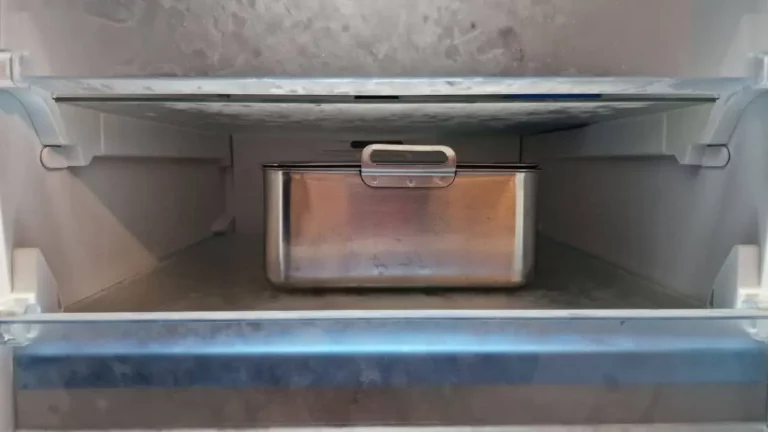
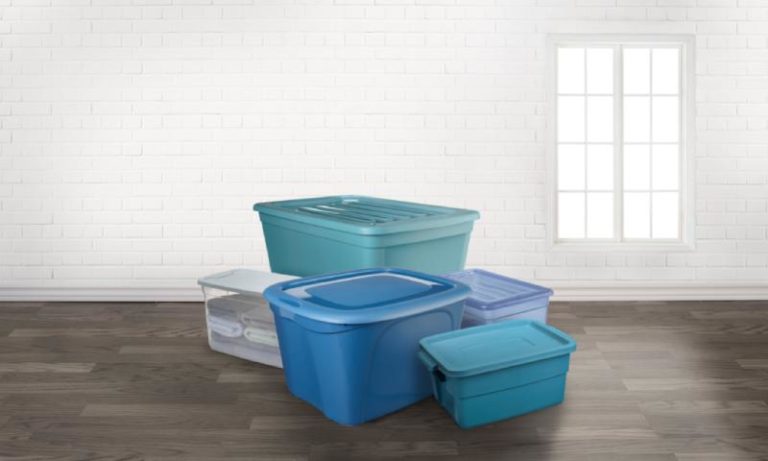
Thanks for your comment Greg. I do not agree with you on this point. Aluminum cookware is still used throughout the developing world. Regarding your question above, you can check the sources in the article.
I question the validity of having to throw out my cherished Magnalite pots that are in perfect used condition because they are over 5 years old.
If it’s over 5 years old, this is what I recommend. In the same way, if you notice any scratches on the inside of the pot. See the picture for example.
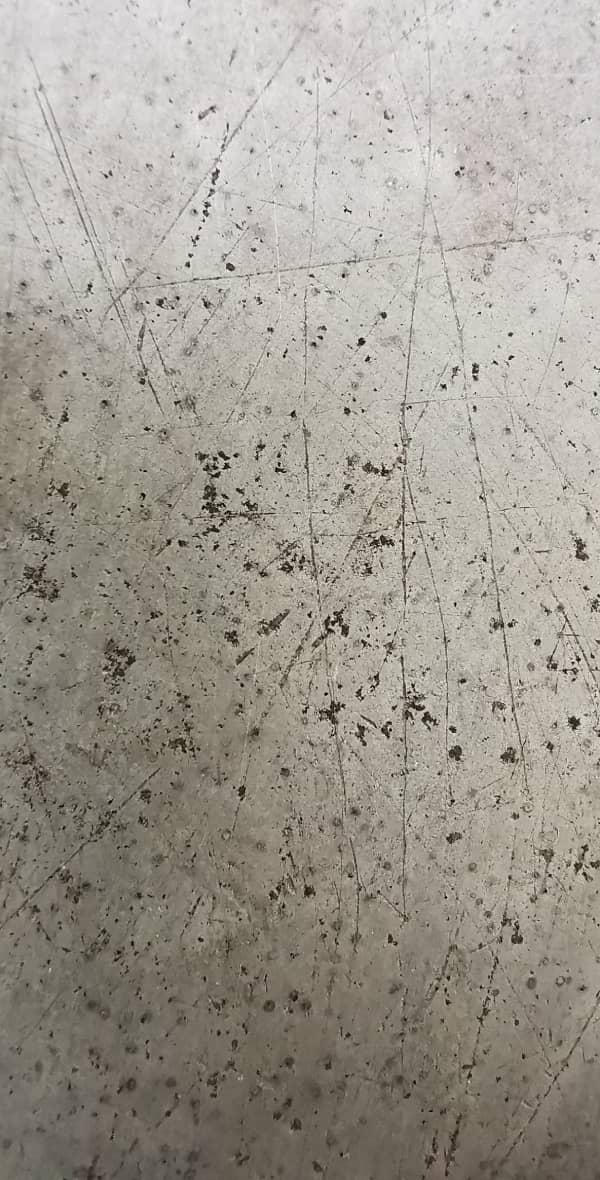
What does it mean to grit the surface of aluminum cookware to get rid of pits? Thanks
To sprinkle the surface (heated before) of the cookware with coarse salt and scrap it.
Is Silver Seal cookware (old but in good condition) also hazardous to your health? Also, can Silver Seal be used in an oven or just stovetop? Thanks
1 – I would not recommend to use it. For the same reasons explained in this article (Magnalite = Silver Seal)
2 – For security reasons I would not recommend this! Extremely hot and too dangerous when you have to handle it.
Tell me why my cousin who bought her Magnalite 4263 roasterette 20 plus years ago and has used it frequently ever since hasn’t had a single I’ll health effect from it? Sharon loves it. S he e’s a cook, not a collector. I’ve listened to the evils of cured meats, smoked meats, too much smoking on the grill. I’m 69 years old, so do you think I’m going to be the least concerned about this alarmist post? If Wagner Magnalite I just purchase was so dangerous, woudn’t they have been banned? It’s just like my “concerned” Illinois Governor signed into law legislation that bans the sale of certain rifles for the safety of Illinois citizens. Same thing. Let this 69 year old decide for himself what cookware is safe. Except for age related issues totally unrelated to the cookware I use, all my health care providers say I am pin good shape. I plan on roasting a chicken inmy meagnalite!
Thank you for sharing your opinion!
@Laurent, What about the link between aluminum and dementia? I would not use aluminum. Thanks for the article.
Sorry but I don’t have any infos or proofs about the subject!
I have a vintage aluminum colander, should I get rid of it? Also, I have a vintage aluminum measuring cup, I use it for dry pet food, usually leave the cup inside the bag of pet food for easy scooping, will it leach into the pet food? Thank-you!
Using an aluminum colander or measuring cup for dry pet food should not pose a risk since there is no heat involved. Therefore, it is safe to continue using the vintage aluminum measuring cup for pet food, and there is no need to get rid of the aluminum colander as long as it is not heated.
Also, it’s important to note that aluminum containers should never be used with acidic foods, as the acid can react with the metal and leach into the food.
I have a partial set of Guardian ware cookware from my grandmother. My daughter loves it and has purchased a couple pieces herself. My question is, is it safe to use on top the stove to boil and mash potatoes and or in a 350 degree oven? Thanks
I would not recommend using Guardian cookware to boil potatoes on the stovetop or in a 350-degree oven for the reasons explained in my article. It is important to keep safety in mind and use cookware made of materials that guarantee food safety when exposed to high temperatures, regardless of the cooking method.
I want to use a vintage Comet aluminum muffin pan in my new Breville Smart Oven. It is in remarkable condition. Maybe never even used? I will use paper muffin liners and oil each hole. Do you think this is safe? Thank you.
Certainly! Since you’re using paper liners in the vintage Comet aluminum muffin pan, it’s safe to use in your new Breville Smart Oven. The liners create a barrier that prevents direct contact between the muffins and the aluminum, mitigating any concerns related to using vintage cookware. This method also simplifies cleanup and ensures easy removal of the muffins. So go ahead and enjoy baking with your vintage find!
Does anyone know about the brand Grandeur or have a place to look? I purchased a vintage dutch oven that is in very good condition. It looks exactly like magnalite. I don’t know what country it was manufactured in. It has a number on the bottom.
Thank you in advance.
Unfortunately, I’m not familiar with the Grandeur brand or its Dutch ovens. However, I believe our community might have some insights. If anyone knows about Grandeur, its origins, or any details related to this vintage cookware, your input would be greatly appreciated. Thank you in advance for sharing your knowledge!